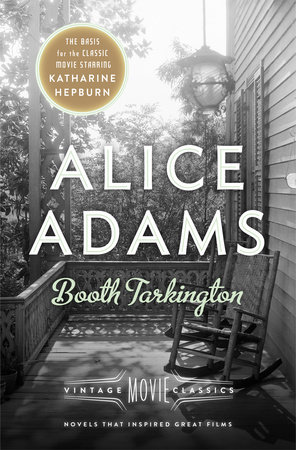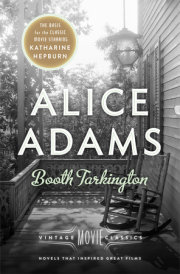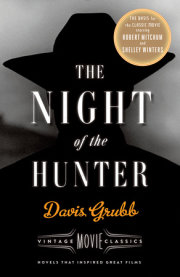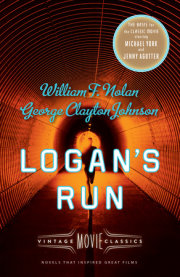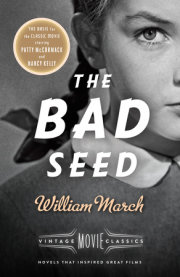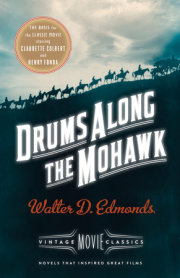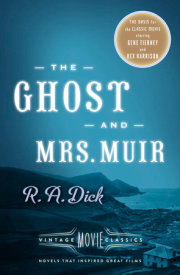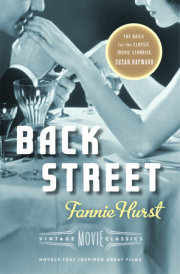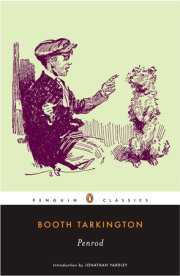1
The patient, an old-fashioned man, thought the nurse made a mistake in keeping both of the windows open, and her sprightly disregard of his protests added something to his hatred of her. Every evening he told her that anybody with ordinary gumption ought to realize that night air was bad for the human frame. “The human frame won’t stand everything, Miss Perry,” he warned her, resentfully. “Even a child, if it had just ordinary gumption, ought to know enough not to let the night air blow on sick people—yes, nor well people, either! ‘Keep out of the night air, no matter how well you feel.’ That’s what my mother used to tell me when I was a boy. ‘Keep out of the night air, Virgil,’ she’d say. ‘Keep out of the night air.’ ”
“I expect probably her mother told her the same thing,” the nurse suggested.
“Of course she did. My grandmother——”
“Oh, I guess your grandmother thought so, Mr. Adams! That was when all this flat central country was swampish and hadn’t been drained off yet. I guess the truth must been the swamp mosquitoes bit people and gave ’em malaria, especially before they began to put screens in their windows. Well, we got screens in these windows, and no mosquitoes are goin’ to bite us; so just you be a good boy and rest your mind and go to sleep like you need to.”
“Sleep?” he said. “Likely!”
He thought the night air worst of all in April; he hadn’t a doubt it would kill him, he declared. “It’s miraculous what the human frame will survive,” he admitted on the last evening of that month. “But you and the doctor ought to both be taught it won’t stand too dang much! You poison a man and poison and poison him with this April night air——”
“Can’t poison you with much more of it,” Miss Perry interrupted him, indulgently. “To-morrow it’ll be May night air, and I expect that’ll be a lot better for you, don’t you? Now let’s just sober down and be a good boy and get some nice sound sleep.”
She gave him his medicine, and, having set the glass upon the center table, returned to her cot, where, after a still interval, she snored faintly. Upon this, his expression became that of a man goaded out of overpowering weariness into irony.
“Sleep? Oh, certainly, thank you!”
However, he did sleep intermittently, drowsed between times, and even dreamed; but, forgetting his dreams before he opened his eyes, and having some part of him all the while aware of his discomfort, he believed, as usual, that he lay awake the whole night long. He was conscious of the city as of some single great creature resting fitfully in the dark outside his windows. It lay all round about, in the damp cover of its night cloud of smoke, and tried to keep quiet for a few hours after midnight, but was too powerful a growing thing ever to lie altogether still. Even while it strove to sleep it muttered with digestions of the day before, and these already merged with rumblings of the morrow. “Owl” cars, bringing in last passengers over distant trolley-lines, now and then howled on a curve; far-away metallic stirrings could be heard from factories in the sooty suburbs on the plain outside the city; east, west, and south, switch-engines chugged and snorted on sidings; and everywhere in the air there seemed to be a faint, voluminous hum as of innumerable wires trembling overhead to vibration of machinery underground.
In his youth Adams might have been less resentful of sounds such as these when they interfered with his night’s sleep: even during an illness he might have taken some pride in them as proof of his citizenship in a “live town”; but at fifty-five he merely hated them because they kept him awake. They “pressed on his nerves,” as he put it; and so did almost everything else, for that matter.
He heard the milk-wagon drive into the cross-street beneath his windows and stop at each house. The milkman carried his jars round to the “back porch,” while the horse moved slowly ahead to the gate of the next customer and waited there. “He’s gone into Pollocks’,” Adams thought, following this progress. “I hope it’ll sour on ’em before breakfast. Delivered the Andersons’. Now he’s getting out ours. Listen to the darn brute! What’s he care who wants to sleep!” His complaint was of the horse, who casually shifted weight with a clink of steel shoes on the worn brick pavement of the street, and then heartily shook himself in his harness, perhaps to dislodge a fly far ahead of its season. Light had just filmed the windows; and with that the first sparrow woke, chirped instantly, and roused neighbours in the trees of the small yard, including a loud-voiced robin. Vociferations began irregularly, but were soon unanimous.
“Sleep? Dang likely now, ain’t it!”
Night sounds were becoming day sounds; the far-away hooting of freight-engines seemed brisker than an hour ago in the dark. A cheerful whistler passed the house, even more careless of sleepers than the milkman’s horse had been; then a group of coloured workmen came by, and although it was impossible to be sure whether they were homeward bound from night-work or on their way to day-work, at least it was certain that they were jocose. Loose, aboriginal laughter preceded them afar, and beat on the air long after they had gone by.
The sick-room night-light, shielded from his eyes by a newspaper propped against a water-pitcher, still showed a thin glimmering that had grown offensive to Adams. In his wandering and enfeebled thoughts, which were much more often imaginings than reasonings, the attempt of the night-light to resist the dawn reminded him of something unpleasant, though he could not discover just what the unpleasant thing was. Here was a puzzle that irritated him the more because he could not solve it, yet always seemed just on the point of a solution. However, he may have lost nothing cheerful by remaining in the dark upon the matter; for if he had been a little sharper in this introspection he might have concluded that the squalor of the night-light, in its seeming effort to show against the forerunning of the sun itself, had stimulated some half-buried perception within him to sketch the painful little synopsis of an autobiography.
In spite of noises without, he drowsed again, not knowing that he did; and when he opened his eyes the nurse was just rising from her cot. He took no pleasure in the sight, it may be said. She exhibited to him a face mismodelled by sleep, and set like a clay face left on its cheek in a hot and dry studio. She was still only in part awake, however, and by the time she had extinguished the night-light and given her patient his tonic, she had recovered enough plasticity. “Well, isn’t that grand! We’ve had another good night,” she said as she departed to dress in the bathroom.
“Yes, you had another!” he retorted, though not until after she had closed the door.
Presently he heard his daughter moving about in her room across the narrow hall, and so knew that she had risen. He hoped she would come in to see him soon, for she was the one thing that didn’t press on his nerves, he felt; though the thought of her hurt him, as, indeed, every thought hurt him. But it was his wife who came first.
She wore a lank cotton wrapper, and a crescent of gray hair escaped to one temple from beneath the handkerchief she had worn upon her head for the night and still retained; but she did everything possible to make her expression cheering.
“Oh, you’re better again! I can see that, as soon as I look at you,” she said. “Miss Perry tells me you’ve had another splendid night.”
He made a sound of irony, which seemed to dispose unfavourably of Miss Perry, and then, in order to be more certainly intelligible, he added, “She slept well, as usual!”
But his wife’s smile persisted. “It’s a good sign to be cross; it means you’re practically convalescent right now.”
“Oh, I am, am I?”
“No doubt in the world!” she exclaimed. “Why, you’re practically a well man, Virgil—all except getting your strength back, of course, and that isn’t going to take long. You’ll be right on your feet in a couple of weeks from now.”
“Oh, I will?”
“Of course you will!” She laughed briskly, and, going to the table in the center of the room, moved his glass of medicine an inch or two, turned a book over so that it lay upon its other side, and for a few moments occupied herself with similar futilities, having taken on the air of a person who makes things neat, though she produced no such actual effect upon them. “Of course you will,” she repeated, absently. “You’ll be as strong as you ever were; maybe stronger.” She paused for a moment, not looking at him, then added, cheerfully, “So that you can fly around and find something really good to get into.”
Something important between them came near the surface here, for though she spoke with what seemed but a casual cheerfulness, there was a little betraying break in her voice, a trembling just perceptible in the utterance of the final word. And she still kept up the affectation of being helpfully preoccupied with the table, and did not look at her husband—perhaps because they had been married so many years that without looking she knew just what his expression would be, and preferred to avoid the actual sight of it as long as possible. Meanwhile, he stared hard at her, his lips beginning to move with little distortions not lacking in the pathos of a sick man’s agitation.
“So that’s it,” he said. “That’s what you’re hinting at.”
“ ‘Hinting?’ ” Mrs. Adams looked surprised and indulgent. “Why, I’m not doing any hinting, Virgil.”
“What did you say about my finding ‘something good to get into?’ ” he asked, sharply. “Don’t you call that hinting?”
Mrs. Adams turned toward him now; she came to the bedside and would have taken his hand, but he quickly moved it away from her.
“You mustn’t let yourself get nervous,” she said. “But of course when you get well there’s only one thing to do. You mustn’t go back to that old hole again.”
“ ‘Old hole?’ That’s what you call it, is it?” In spite of his weakness, anger made his voice strident, and upon this stimulation she spoke more urgently.
“You just mustn’t go back to it, Virgil. It’s not fair to any of us, and you know it isn’t.”
“Don’t tell me what I know, please!”
She clasped her hands, suddenly carrying her urgency to plaintive entreaty. “Virgil, you won’t go back to that hole?”
“That’s a nice word to use to me!” he said. “Call a man’s business a hole!”
“Virgil, if you don’t owe it to me to look for something different, don’t you owe it to your children? Don’t tell me you won’t do what we all want you to, and what you know in your heart you ought to! And if you have got into one of your stubborn fits and are bound to go back there for no other reason except to have your own way, don’t tell me so, for I can’t bear it!”
He looked up at her fiercely. “You’ve got a fine way to cure a sick man!” he said; but she had concluded her appeal—for that time—and instead of making any more words in the matter, let him see that there were tears in her eyes, shook her head, and left the room.
Alone, he lay breathing rapidly, his emaciated chest proving itself equal to the demands his emotion put upon it. “Fine!” he repeated, with husky indignation. “Fine way to cure a sick man! Fine!” Then, after a silence, he gave forth whispering sounds as of laughter, his expression the while remaining sore and far from humour.
“And give us our daily bread!” he added, meaning that his wife’s little performance was no novelty.
Copyright © 2014 by Booth Tarkington. All rights reserved. No part of this excerpt may be reproduced or reprinted without permission in writing from the publisher.

